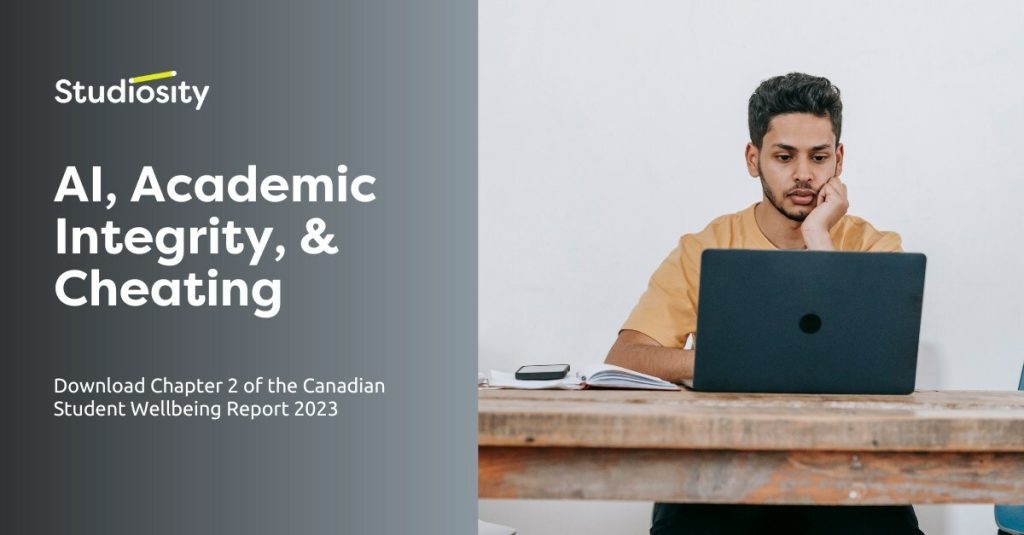Studioisty Canada released the second chapter of their annual Canadian Student Wellbeing Study. This chapter covering artificial intelligence, academic integrity, & cheating showed critical insights into students and their interactions between artificial intelligence (AI), academic integrity, and cheating in colleges and universities. The study, commissioned by Studiosity with research carried out by Angus Reid, offers a comprehensive analysis of the evolving higher education landscape.
As the use of AI, including ChatGPT, continues to grow, students are experiencing a significant change in their study methods across various programs of study. The research report reveals a shift in academic behavior, with over 40% of students acknowledging that they have personally witnessed instances of cheating facilitated by AI tools within the past year.
Another concerning revelation from the study is the willingness among students to consider cheating. Approximately 26% of respondents indicated that they are more likely to consider cheating tools like essay mills and AI writing software that have become more widespread and accessible. This trend highlights the relationship between technological advancements and ethical decision-making within education.
Of particular concern is the observation that graduate students, a demographic widely regarded for their commitment to academic rigor, are significantly impacted by these trends. Nearly two-thirds (65%) of graduate students reported witnessing cheating behaviors. It is possible that graduate students report witnessing more cheating as some fulfill the role of Tutorial Lead and Teaching Assistants for undergraduate classes.
The study also shows the tension surrounding AI. Balancing the impact of new learning technologies’ ability to help students flourish with the potential to facilitate cheating is not new, the release of ChatGPT has brought this tension into focus and given post-secondary institutions a lot to consider as they head into the 2023-2024 academic year.
The research report offers a call to action for educators and policymakers to address the growing complexities surrounding AI, academic integrity, and cheating in higher education. It serves as a catalyst for ongoing discussions that seek to strike a balance between technological progress and preserving the fundamental tenets of education.
